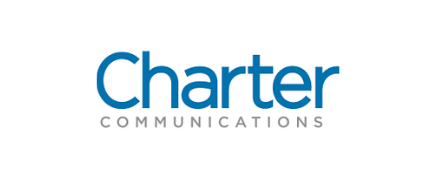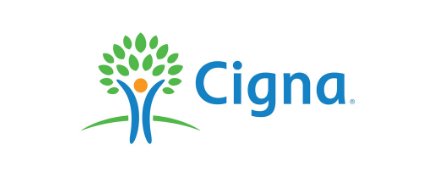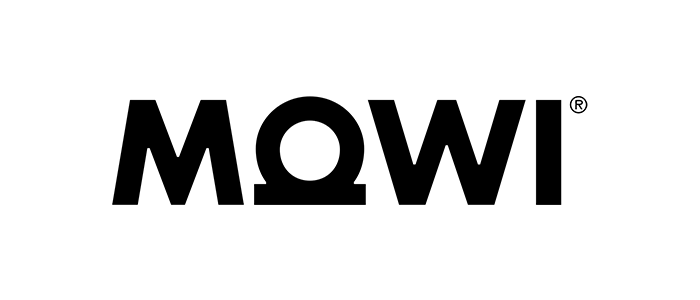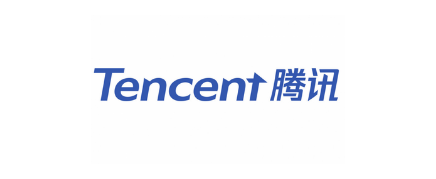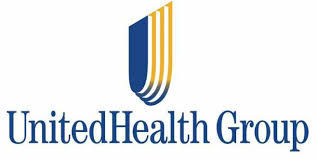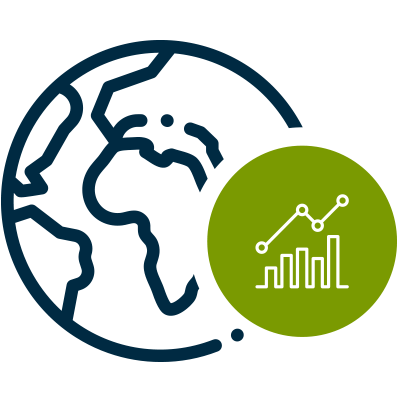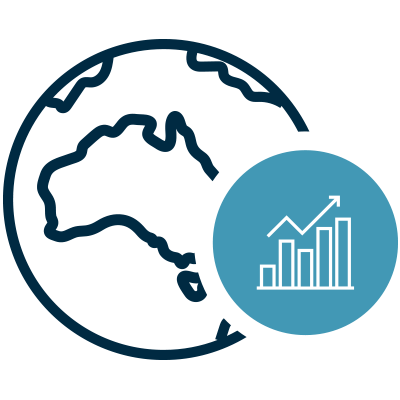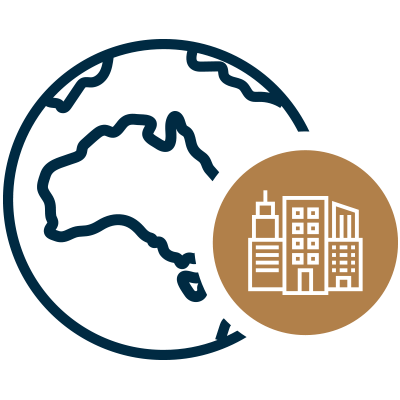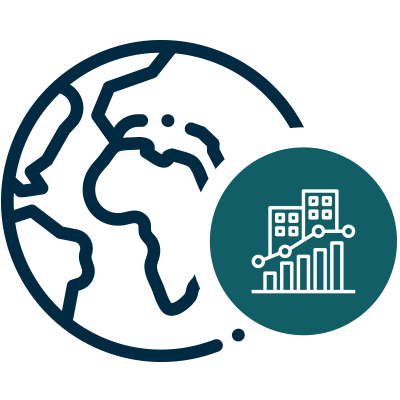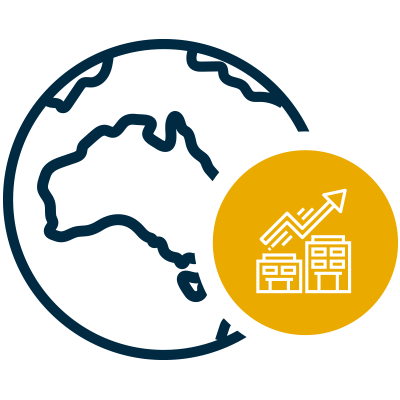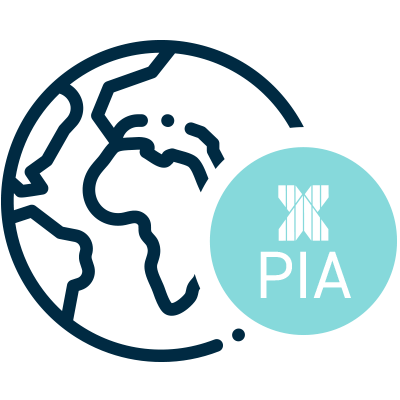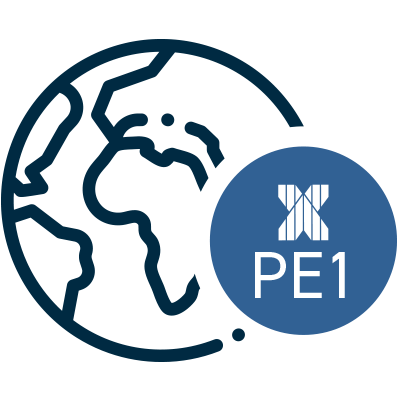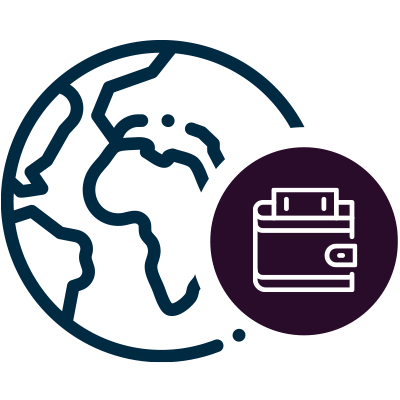Finding opportunities in market crashes (webinar)
PORTFOLIO
Top Holdings (alphabetically)
Sector Breakdown
Capitalisation Breakdown
Region Breakdown
Segment
PERFORMANCE
PERFORMANCE SINCE STRATEGY INCEPTION
NET PERFORMANCE FOR PERIODS ENDING 31 Mar 20201
PERFORMANCE SINCE STRATEGY INCEPTION
NET PERFORMANCE SINCE INCEPTION2
COMMENTARY
Covid-19 created havoc as the global economy was placed into an induced coma. In response, markets seized-up, convulsed, and collapsed. Central banks came to the rescue and governments are implementing record stimulus plans with more (probably) to come.
Amidst this environment, in 1Q20 the MSCI All Country World Total Return Index in Australian Dollars (“Index”) declined 9.7% and the Pengana International Equites – Ethical (PIEF-E) declined 3.9%. This outperformance came from both the fund’s equity investments and cash holdings.
The fund seeks businesses that are highly cash flow generative, growing, reasonably priced and have low financial leverage (debt). There is no question of these companies’ survival and they tend to fare relatively well during periods of turmoil. We also actively seek investments in businesses that benefit from market turmoil, such as Flow Traders, which delivered a +27% return over the quarter. Our approach has historically worked during period periods of market turmoil and 1Q20 was no different.
We have often discussed the importance of managing volatility and 1Q20 is a perfect case in point. During Mar-20 volatility as measured by the Chicago Board Options Exchange’s CBOE Volatility Index (“VIX”) hit an all-time high with the S&P500 having its fastest ever move into a bear market.
The panic was palpable as many rushed for the exit and investors felt the crushing pain of losses. Judging by the public’s response you would be excused for not knowing that despite the Index’s almost 10% decline over the quarter, the Index was still up 3% vs the prior year and up 30% on a three-year basis. This isn’t to downplay the unease many are feeling but it is a comment that volatility is a bad thing for investors’ psyche, even if it comes with a 30% three-year return. If ever there was evidence of the importance of considering volatility in one’s investment objectives it is now.
It is worth considering why there has been so much volatility. We believe the answer lies in both technical and fundamental factors. The technical factors relate to market structure and the interest rate environment. The fundamental factors relate to what impact Covid-19 will have on the global economy.
The rise of algorithmic trading and low interest rates magnify volatility when it arises. There is a huge sub-segment of algorithmic trading that is designed to sell when markets decline and buy when they rise, thereby inflating market moves. Low interest rates are also important because low rates imply high bond duration, which is another measure of fixed income volatility. These factors mean when volatility does arise, it is likely to be severe.
Moving on to the fundamental factors contributing to volatility and market weakness. It is well understood that Covid-19 is having, and will continue to have, a severe impact on the global economy. The questions are for what length of time, what type of rebound and what will be the impact of the monetary and fiscal stimulus?
Our starting premise is that the economic impact of Covid-19 is likely to escalate during 2Q20 as the full impact of the global lock down is felt. For example, the US unemployment rate of 4.4% in Mar-20 is forecast to be >10% by mid-year1 and both the US and EU GDP is forecast to decline by 7-8% (28-32% annualized) in 2Q20. These are eye-watering numbers that the developed world has not witnessed before in such a short period of time.
Recovery will be predicated on containing Covid-19. We assume that will occur during 2H20 following the extensive global lock downs and as we move into the northern hemisphere summer. At this stage there doesn’t appear to be a permanent destruction of demand and coupled with expected further government stimulus, the global economy should rebound. It is too early to hazard a guess as to whether that rebound will be V-shaped or U-shaped.
Considering our expectations, we have taken several actions. Firstly, early in Mar-20 we exited every position that we believed was highly exposed to the negative impact of Covid-19, including American Express, KAR Global, Booking Group, Huazahu Group and AIA Group. Secondly, we invested in businesses that hit our buy price and are likely to benefit from Covid-19 or the fiscal stimulus that is likely to implemented post this crisis, including Thermo Fisher, Vestas Wind Systems and Sika. Finally, we have loaded the trigger to buy several other businesses we have long wished to own but have not yet reached our buy price.
Amidst all this fear and panic it would be remiss not to mention some silver linings. The environment has breathed a notable sigh of relief. With less industry, travel and pollution the Mumbai sky is clear, Venice’s usually dark, murky waterways have turned noticeably clearer, the atmosphere has been spared millions of tonnes of CO2 normally emitted by aeroplanes and families are spending more time together. Finally, as it relates to our fund, we have demonstrated the effectiveness of our risk management strategies and we are finding many more superb investment opportunities that will set up the fund to continue delivering healthy returns into the future.
PROFILE
STATISTICAL DATA
PORTFOLIO SUMMARY
FEATURES
- APIR CODE HOW0002AU
- REDEMPTION PRICEA$ 3.0333
- FEES * Management Fee: 1.35% p.a
- Minimum initial investment $25,000
- FUM AT MONTH END A$ 320.3m
- STRATEGY INCEPTION DATE 1 July 2015
- BenchmarkMSCI All Country World Total Return Index (net, AUD)
Fund Managers
Description
The Pengana International Ethical Fund is a long only fund that holds 30-50 companies across developed and developing markets, large and small companies. The Fund predominantly invests in companies that deliver stable yet growing free cash flow throughout cycles (which we classify as ‘Core’ holdings) whilst also taking positions in more cyclical companies (‘Cyclical’) and those whose valuation has been materially misconstrued by the market (‘Opportunistic’). We avoid investment in companies that are, in our opinion, harmful to people, animals or the environment.
EXPLORE OUR FUNDS
1. Net performance figures are shown after all fees and expenses and assume reinvestment of distributions. Past performance is not a reliable indicator of future performance, the value of investments can go up and down.
2. A new strategy was implemented for the Pengana International Ethical Fund from 1 July 2017 by the Pengana team. The financial information refers to the strategy currently employed by the Pengana International Ethical.
From July 2017, performance figures are those of the Pengana International Ethical Fund (the “Fund”) class A units (net of fees). Between July 2015 and June 2017, performance figures have been recalculated by adjusting the Pengana International Fund’s (ARSN 610 351 641) net returns to reflect the management fee of the Fund. From July 2017 the Fund has been managed by the same team and with the same portfolio construction strategy as the Pengana International Fund, complemented by strict ESG filters and processes. The Pengana International Fund’s net track record data is historical. Past performance is not a reliable indicator of future performance. The value of the investment can go up or down.
3. Annualised standard deviation since inception.
4. Relative to the MSCI All Country World Total Return Index in AUD.
*For further information regarding fees please see the PDS available on our website.


